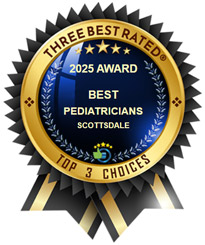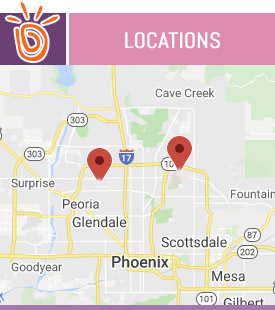Pediatric Dehydration Treatment Questions and Answers
At KidsHealth Pediatrics, we provide comprehensive, quality care for children, under the direction of our pediatrician Dr. Maria Nabong. Book an appointment or give us a Call. We have 2 Pediatric clinics in Scottsdale and Glendale AZ.
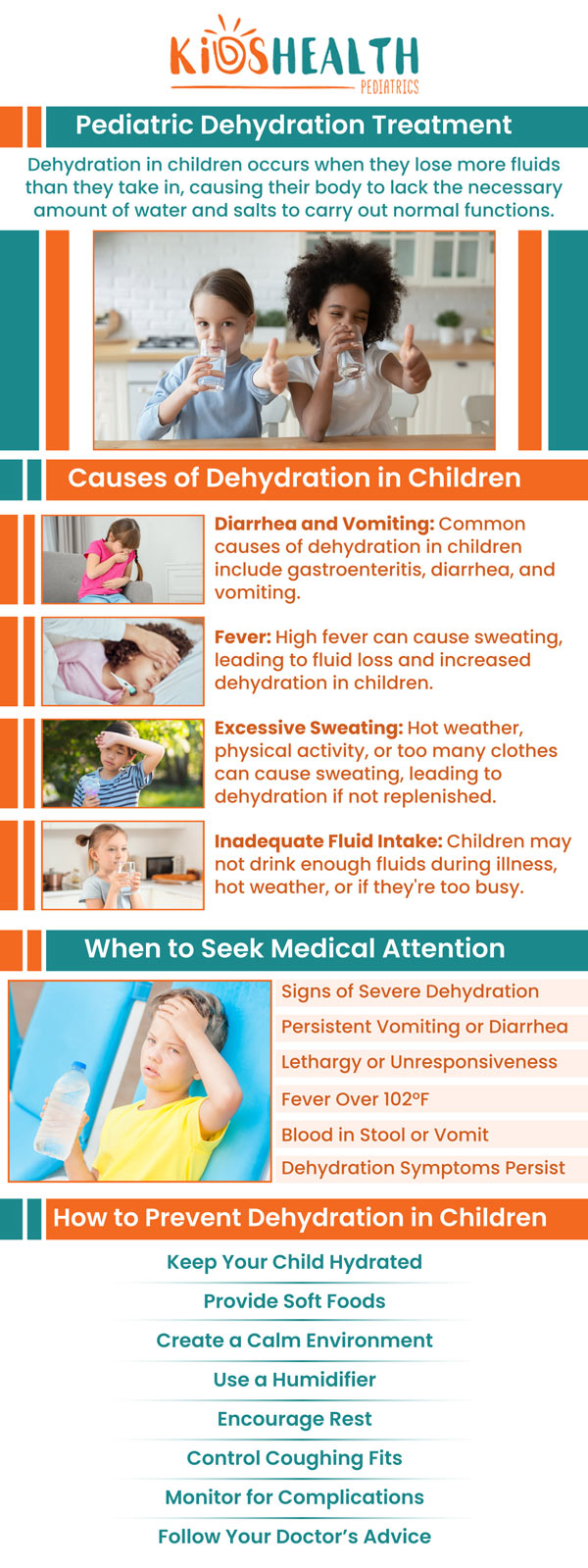
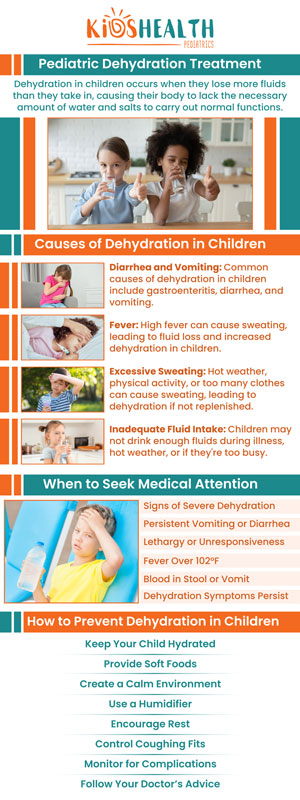
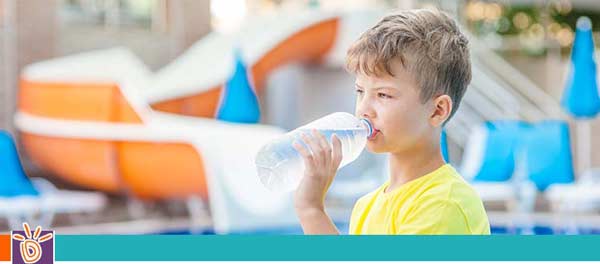

Table of Contents:
What is dehydration?
What are the signs and symptoms of dehydration in children?
How is pediatric dehydration treated?
When should I take my child to a pediatric urgent care for dehydration?
Simply put, dehydration is when your body loses more fluids than it takes in. When this happens, your body doesn’t have enough of its water and electrolytes (essential fluids) to function properly and carry out its normal processes. Many of us may be familiar with the feeling of being extra thirsty on a hot day, but dehydration is a much more serious condition that needs to be looked out for, especially in children, older adults, and those with underlying medical concerns or issues. While in some scenarios you may be able to reverse dehydration by taking in extra fluids, it is a good idea to air on the side of caution and seek out medical attention and care if you suspect that yourself, your child, or someone else is experiencing dehydration.
Dehydration can be more common in infants and children for a few reasons. Firstly, children tend to get sick more often, and are the most likely group to experience frequent, excessive, or severe vomiting and diarrhea as a result of various illnesses. Vomiting and diarrhea are one of the main causes of dehydration, so this poses an increased risk. Also, young children may not be able to tell a parent or guardian that they are feeling thirsty, or they may be unable to get a drink for themselves. Furthermore, because of their size and body composition, children tend to lose more fluids in general than adults when experiencing a fever or burn. The signs and symptoms of dehydration may also appear differently in children than they would adults or anyone else, so it’s important to know the signs. Watch out for:
• A dry mouth and/or tongue
• No production of tears when crying
• In babies and infants, no wet diapers for three hours or more
• Eyes and cheeks that may appear sunken in
• A sunken soft spot on the top of the skull
• General listlessness (fatigue) or irritability
Like adults, children may also experience dizziness or confusion. Keep in mind that symptoms can also vary depending on the age and stage of dehydration.
Regardless of the stage or severity of dehydration, the overall solution is to replace the vital fluids and electrolytes that the body has lost. This can be done in different ways, again depending on how severe the dehydration is. If it is quite severe and requires an emergency or urgent care setting, the fluids may have to be administered intravenously. However, one of the more common or initial approaches is known as Oral Rehydration Therapy (ORT), which simply means consuming the necessary fluids and electrolytes orally.
With children, this can be more difficult to accomplish, as they may not want to consume large amounts of fluids, or have a harder time doing so than adults. You may need to monitor your child and guide them through this process. There are also specific over the counter (OTC) products used to help treat pediatric dehydration, such as Pedialyte, which is a drink comprised of essential fluids and electrolytes that can help with oral rehydration. Many parents will turn to this type of product when their child is ill and experiencing vomiting and diarrhea and may otherwise be unable to consume or keep down solid foods.
Dehydration can be serious, especially in children, so if you’re not sure what to do, it is best to seek out urgent care and the help of a medical professional. At KidsHealth Pediatrics, our in-house pediatrician Dr. Maria Nabong, has extensive experience working with children and can help treat dehydration, as well as support parents to manage dehydration in their child and learn what to do and what to look out for.

Additional Services You May Need

Additional Services You May Need


